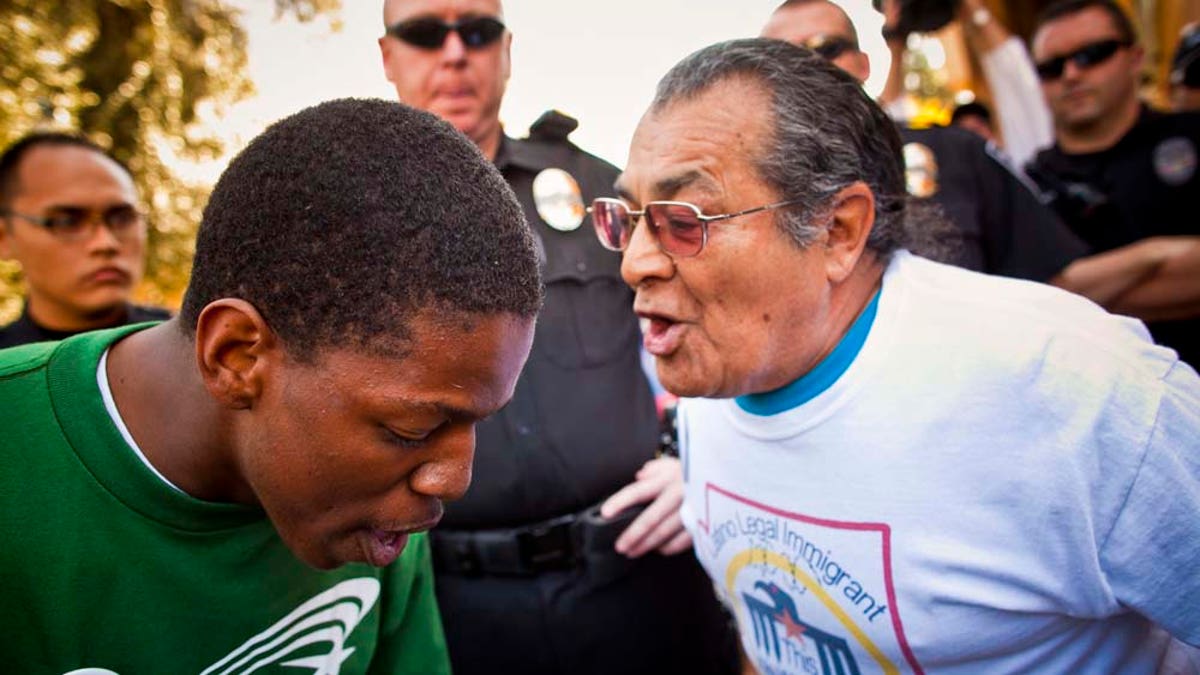
Two protestors in Arizona confronting one another. (AP)
A feud between two nationally known immigration research centers supposedly dedicated to conducting non-partisan, unbiased research foreshadows likely political divisions in the upcoming national immigration reform debate.
The Center for Immigration Studies, a pro-strict immigration enforcement think tank, blasted a report released this week from the liberal-leaning Migration Policy Institute. The report concluded that the federal government has spent $187 billion over the last 26 years on immigration enforcement, which CIS labeled as “bogus” and an “attempt to help sell the President’s immigration agenda.”
MPI vehemently denied the accusations.
Evidently, even typically civil and mostly nonpolitical think tanks can’t avoid getting political over immigration.
CIS, which favors restricting illegal and legal immigration, believes the MPI report misleadingly suggests that more than enough funding has been given to federal immigration enforcement. The center believes the government needs to do a better job enforcing immigration laws already on the books before changing or adding new ones.
“I couldn’t help but think they were being deliberatively manipulative,” said Jessica Vaughn, Director of Policy Studies at CSI. “Frankly, it took just a few hours to see that they were way off on the budget.”
CIS accuses MPI of “grossly” inflating immigration enforcement spending totals by tallying activities from three Department of Homeland Security agencies that supposedly do not enforce immigration laws.
MPI took exception to the accusation that their two-year, 182 page study serves the White House by deliberately pushing “misleading research” that would support Obama’s push for comprehensive immigration reform.
“If you look at CIS’s research, I don’t think you see the same kind of rigor,” a top MPI researcher who directed the country’s immigration system in the 1990s.
“This particular report offers no policy recommendations,” Meissner said. “We have not suggested any reductions in funding anywhere. This is a report we would have issued regardless of who was president.”
She added that the CIS was out of line in its attack.
“That is an outdated notion, there is now substantial funding, and a modernized system, the system can be improved, but we need to talk about the issues,” Meissner explained.
Nestor Rodriguez, sociology professor at the University of Texas who has researched immigration for more than 40 years, is not surprised by the bickering between both organizations over this thorny issue.
“There are two levels of debate, the scientific, and then there is the political level,” Rodriguez said. “Even research organizations are affected by that, it’s ultimately up to the individual to take a good hard look at the data and decide from there.”





















